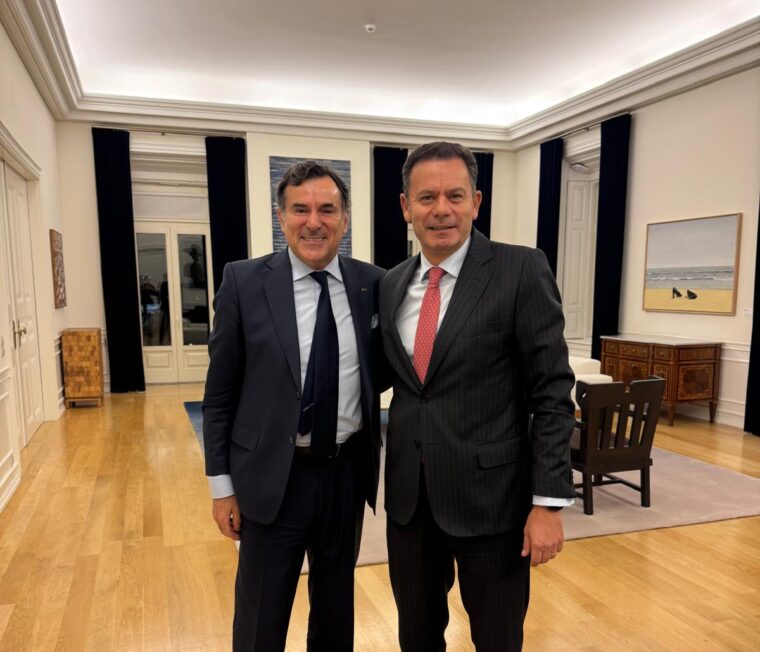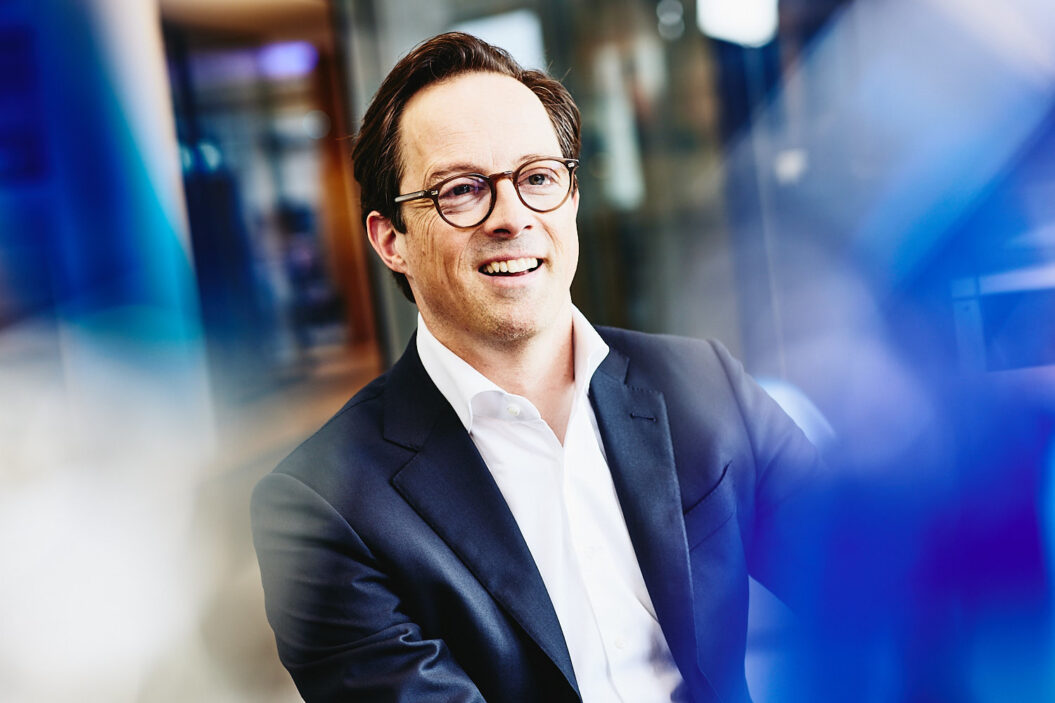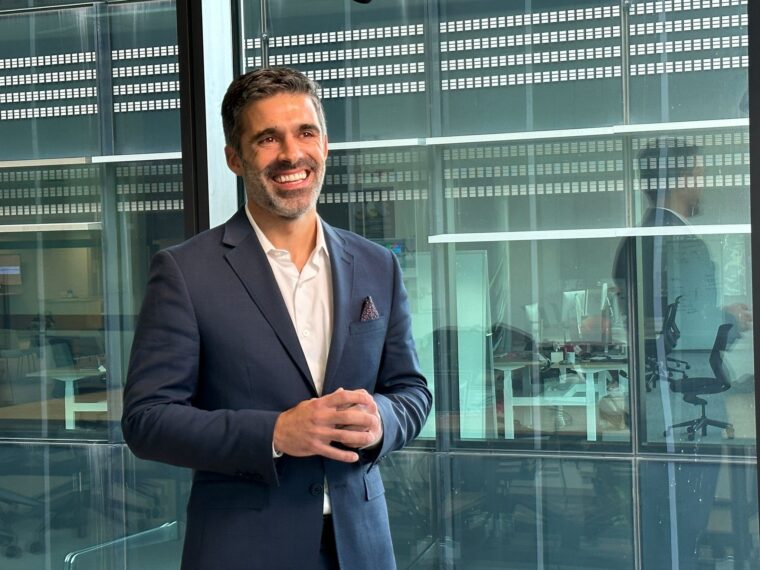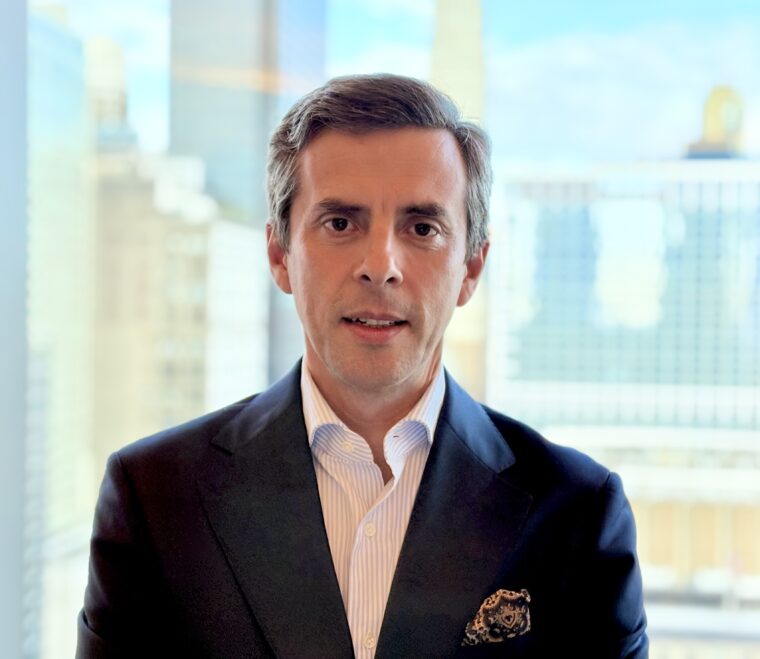As part of the partnership between the Portuguese Diaspora Council and Jornal de Negócios, Jorge Vazquez, CFO at Randstad NV, and Counselor of the Western Europe Regional Hub, was interviewed by Jornal de Negócios. In the interview, Jorge Vazquez discussed his professional journey and identified competitive opportunities for Portugal, its economy, companies, and entrepreneurs in general.
1 – WHAT LED YOU TO LEAVE PORTUGAL?
From a young age, I had the opportunity to be exposed to international experiences, which led me to explore new worlds, and in turn triggered a succession of choices and decisions we call a life story.
I prefer to think that I never really left Portugal. There was never a grand plan! Fate, chance, and coincidence?
2 – WHAT ADVANTAGES OR DISADVANTAGES HAS THE FACT THAT YOU ARE PORTUGUESE BROUGHT YOU?
I lived in Brazil for five years, where the shared language and cultural affinity with Portugal were decisive. Beyond that, despite an unshakable sense of pride—or perhaps naively—I never felt that nationality, specifically, played a central role in the interactions I had. At most, it was an added curiosity and (great!) fuel for casual conversation.
On the other hand, we are all products of our context.
Portugal is (very) big. And even though it’s geographically small, within that ‘pride’ and determination, I always found the confidence to face challenges.
I’ve always been surrounded by a strong sense of responsibility. My parents instilled in me a respect for work and the importance of dedicating ourselves to something simply for its purpose. I’ve always considered the education I received to be, in some way, a competitive advantage. I grew up surrounded by people I admire—people of character and talent—in a culture grounded in mutual respect and diplomacy, where the only acceptable outcome is a solution in which everyone wins.
Never small-minded, petty, or showy.
3- WHAT OBSTACLES DID YOU HAVE TO OVERCOME AND HOW DID YOU DO IT?
None that stand out. I was perhaps fortunate to have been mentored by people who supported me both personally and professionally, and I’ve always felt at home wherever I was.
I’ve always believed that, no matter how different we may be, we have more in common than what separates us. And even in our differences, with a bit of attention, we often find more reasons for wonder than for disappointment.
On a personal level, of course, you always wish the distance were shorter—but there are other ways to ease the feeling of longing.
4 – WHAT DO YOU MOST ADMIRE ABOUT THE COUNTRY YOU ARE CURRENTLY IN?
The Netherlands (or the Dutch Republic, I should say!) combines one of the freest capitalist economies in the world with a strong social contract based on clear rights and responsibilities.
Culturally, although I’m not religious myself, I believe Calvinism evolved here into a way of life that has played a key role in the country’s political and social success over the past century.
A common expression here is ‘doe normaal’, which, roughly translated, is a call to focus on substance over appearance—on facts rather than the person presenting them. The work culture reflects these values: open, content-driven, and pragmatic.
The directness that sometimes comes across as bluntness, in my view, stems from a deeply rooted egalitarianism—a belief in the equality of all people. This often leads to a unique attitude toward hierarchy and status. Great for open discussions!
Lastly, politically—at least historically—the need to build consensus in coalition governments has brought a level of policy stability that enables long-term decisions and investments.
5 – WHAT DO YOU ADMIRE MOST ABOUT THE COMPANY / ORGANIZATION YOU ARE IN?
The company’s purpose and values are also a major part of what has driven its success over the past 65 years. Randstad is the global leader in talent, present in 39 countries. Every day, we work to find the best opportunities for our candidates and the best talent for our clients. Each year, we help around 2 million people find jobs and advise over 200,000 clients.
Its success lies in the people who, every day, make a difference. It is, quite literally, a company of people, for people. Leading and inspiring that energy is both a privilege and a responsibility. In Portugal, we are more than 400 employees out of a global team of around 40,000—and they are truly the key to our success. What sets us apart is, above all, the unique and personalized relationships each of our team members builds with talent and clients. It’s that sense of ownership and commitment that makes the company special.
Thirdly, this is a unique opportunity. The labor market is constantly evolving, which brings a special dynamism to our business and a deep sense of responsibility toward the people we support. We are currently undergoing a major transformation to revolutionize the experience each person has when interacting with Randstad. Ours is one of the last industries still ripe for large-scale improvement through the power of digitalization.
6 – WHAT RECOMMENDATIONS DO YOU HAVE FOR PORTUGAL, ITS ENTREPRENEURS AND MANAGERS?
Throughout our history, necessity has always sharpened our ingenuity. I believe that with the quality of our education, our determined and resilient attitude in the face of any challenge, and the open culture for which we are known, we have everything it takes to succeed anywhere in the world.
The first key to success is ensuring that choices are made in sectors and needs that offer scale and structural reasons for long-term growth—in other words, to row with the current, not against it. Market potential—or the lack thereof—often ends up being one of the most limiting factors to a company’s success.
Secondly, the definition of a market strategy that is European or international from the outset is essential. It allows ideas to be tested, improves the competitiveness of products and services, and helps avoid the pitfalls of subscale operations or temporary, hard-to-replicate success. It means fully leveraging, from the very beginning, our place in a single European market or a globally interconnected world.
Finally, a well-diversified shareholder and capital structure brings unique advantages to support companies through different stages of growth—not only in terms of funding, but also in management support, strategic choices, partnerships, and business development overall.
7 – IN WHICH SECTORS OF THE COUNTRY WHERE YOU LIVE CAN PORTUGUESE COMPANIES FIND CUSTOMERS?
Technology, infrastructure, and business consulting services are highly prominent sectors in the Netherlands. Portugal trains professionals of excellence and has cutting-edge companies that have much to contribute to these fields. Recently, I’ve been pleased to see the growth of Portuguese auditing, engineering, and legal services firms here in the Netherlands.
In the coming years, we can especially take advantage of the expected growth in the aerospace and defense sector, where we already have a strong starting point.
We also have one of the most competitive hospitality sectors in the world, with a wide range of concepts and offerings—something we can also export, not just import, by scaling those models here.
8 – IN WHICH SECTORS IN PORTUGAL COULD COMPANIES IN THE COUNTRY WHERE YOU ARE WANT TO INVEST?
We are leaders in renewable energy—a sector that continues to evolve and in which we will no doubt remain at the forefront.
We have a strong education system, talented people, and an open, rich, and culturally nuanced society that consistently rises to meet challenges. In this context, service sectors based on advanced technology or knowledge—such as consulting, engineering, and systems development—are areas where we have significant value to contribute to globally integrated value chains.
The agriculture and food sector is also undergoing a major transformation, and once again, we are well-positioned to become a global leader.
In an interconnected world, Portugal has a great deal to offer foreign capital.
9 – WHAT IS THE COMPETITIVE ADVANTAGE OF THE COUNTRY YOU ARE IN THAT COULD BE REPLICATED IN PORTUGAL?
As I mentioned earlier, pragmatism combined with tangible results would be the first thing I would ‘import’. There are already visible efforts in this area, but I would continue to reinforce them and celebrate the successes that follow. Concretely, this means less ideology and fatalism, a stronger focus on reducing administrative bureaucracy, combined with policies and resources to better support businesses and job creation, and a more efficient tax system.
A faster, more responsive judicial system is also critical to support businesses and investment—enabling quicker success and failure, and a more efficient allocation of capital.
The relatively high weight of the State in our economy is something I would also re-evaluate, to avoid the risk of crowding out private initiative. Letting market dynamics play their role would help optimize the allocation of capital and resources, encouraging competition and innovation wherever possible.
10 – ARE YOU THINKING OF RETURNING TO PORTUGAL? WHY?
Family and friends (and the glorious one) are irreplaceable, and sooner or later—without a doubt—I’ll return more regularly, or even full-time. When it comes to these things, where there’s a will, there’s a way.







